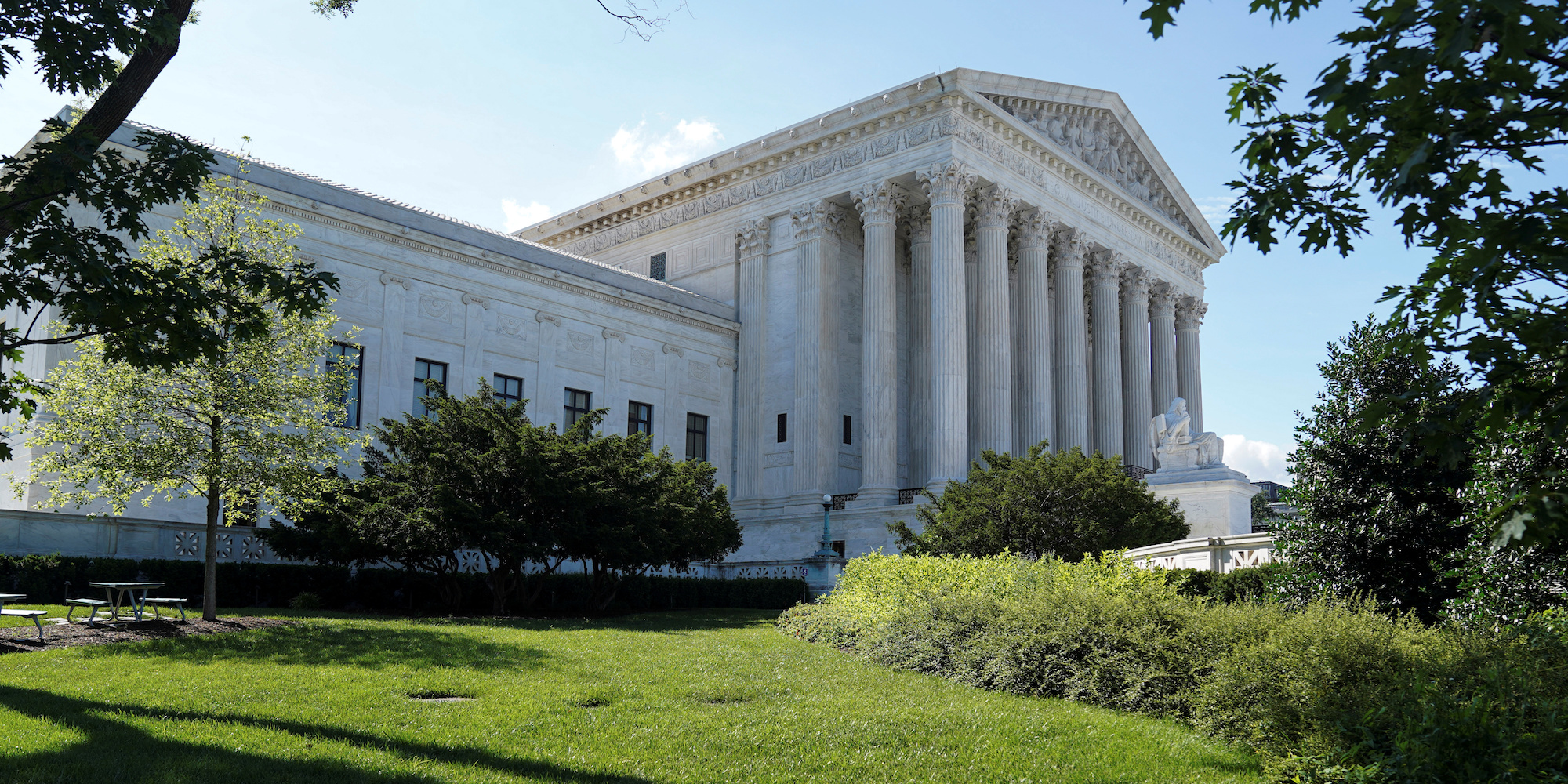- The Supreme Court just quietly overturned a decision that upheld the internment of Japanese-Americans during World War II as part of a ruling upholding President Donald Trump’s controversial travel ban that primarily targets majority-Muslim countries.
- In Tuesday’s 5-4 decision, the Supreme Court ruled that the president has broad authority to regulate immigration despite concerns that his travel ban unfairly targets Muslim countries.
- Justice Sonia Sotomayor, who wrote the dissenting opinion, contended the court was employing the “same dangerous logic underlying” the decision on the detainment of Japanese-Americans.
The Supreme Court just quietly overturned a decision that upheld the internment of Japanese-Americans during World War II as part of a ruling upholding President Donald Trump’s controversial travel ban that primarily targets majority-Muslim countries.
During World War II, President Franklin D. Roosevelt issued Executive Order 9066, which led the US government to force more than 100,000 people of Japanese descent into detention camps.
The decision overruled by the Supreme Court on Tuesday, Korematsu v. United States, was centered around a man named Fred Korematsu, a Japanese-American who refused to comply with the order. On December 18, 1944, the Supreme Court ruled it was a “military necessity” to detain people of Japanese descent during the war and argued the order was not based on race.
Chief Justice John Roberts made it clear he disagrees with this assessment in the majority opinion on Trump’s travel ban.
"The forcible relocation of US citizens to concentration camps, solely and explicitly on the basis of race, is objectively unlawful and outside the scope of Presidential authority," Roberts wrote in the majority opinion.
"Korematsu was gravely wrong the day it was decided, has been overruled in the court of history, and - to be clear - 'has no place in law under the Constitution,'" Roberts added.
This was partially in response to the dissenting opinion from Justice Sonia Sotomayor, which contended the ruling on Trump's travel ban has "stark parallels" with the "reasoning" behind the decision made regarding Korematsu.
"Today, the Court takes the important step of finally overruling Korematsu," Sotomayor added. "This formal repudiation of a shameful precedent is laudable and long overdue. But it does not make the majority's decision here acceptable or right."
Sotomayor went on to contend the court was redeploying "the same dangerous logic underlying Korematsu" in upholding Trump's travel ban. She described the travel ban as a "discriminatory policy motivated by animosity toward a disfavored group" that is being justified via a "superficial claim of national security."
Roberts vehemently disagreed with Sotomayor, arguing it's "wholly inapt to liken that morally repugnant order to a facially neutral policy denying certain foreign nationals the privilege of admission."
In Tuesday's 5-4 decision, which left justices sharply divided, the Supreme Court ruled the president has broad authority to regulate immigration despite concerns his travel ban unfairly targets Muslim countries. The court said the government had "set forth a sufficient national security justification" for the ban.
The Trump administration has put forward three different versions of the travel ban, facing numerous legal hurdles along the way. The iteration upheld on Tuesday places travel restrictions on travelers from Syria, Iran, Yemen, Somalia, Libya, North Korea, and Venezuela.

